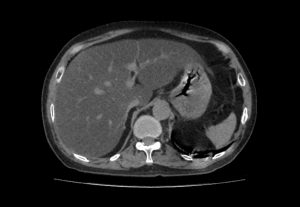As Covid-19 surged in 2020, countries across the globe implemented stay-at-home orders and travel restrictions to prevent the spread of the virus. These measures came at a great economic cost and, at the time, there was limited evidence they would be effective.
To further understand the complex dynamics at play when mobility is restricted at a population level in response to a pandemic, CUNY SPH Adjunct Associate Professor J. Robin Moon and member colleagues from the Journal of Global Health Science Covid-19 Commission, led a study published recently in Scientific Reports.
To find out if mobility restrictions were associated with changes in the occurrence of Covid-19 in 36 countries, the authors used the Google Global Mobility Data Source, which reports different types of mobility, and Covid-19 cases retrieved from a dataset curated by Our World in Data.
Overall, the expectation that reduced mobility would be associated with reduced occurrence of new Covid-19 cases was confirmed, but the decrease plateaued as mobility remained low or decreased further. Mobility restrictions were most effective in the early phase of the pandemic, with a much smaller effect in the later phase.
The authors recommend that policymakers consider the effectiveness of mobility restriction in response to Covid-19 and the economic impacts imposed on society, especially since the pandemic seems far from over. More evidence, including the relationship with other mitigation measures, is needed to fully understand the role of mass restrictions on mobility in containing Covid-19 and future infectious diseases. As the pandemic progresses, governments should develop strategies that limit the amount of circulating virus and allow rapid responses to further outbreaks.
“The pandemic has drastically changed how we live and work, and these changes will likely persist despite widespread vaccination,” Dr. Moon says. “Surveillance that goes beyond incidence of infection, to include risk factors such as mobility, can only improve our ability to develop effective public health responses.”



